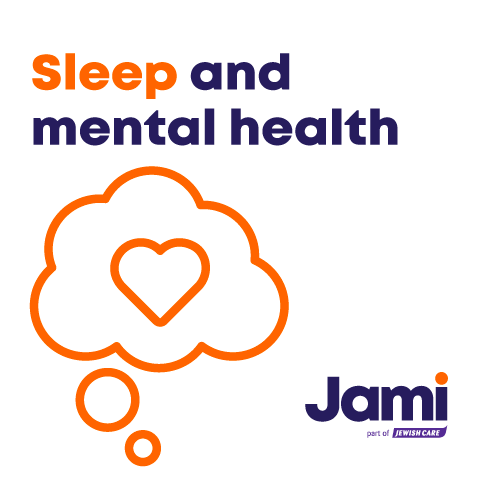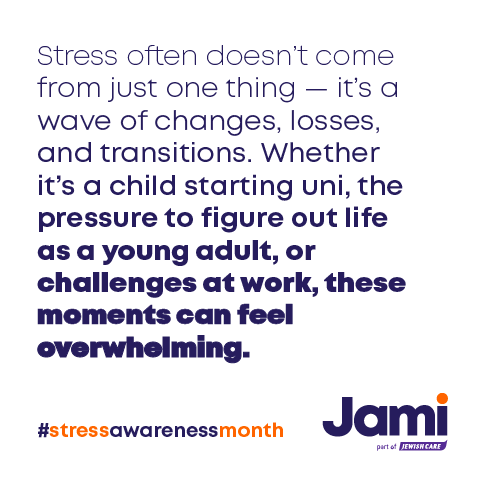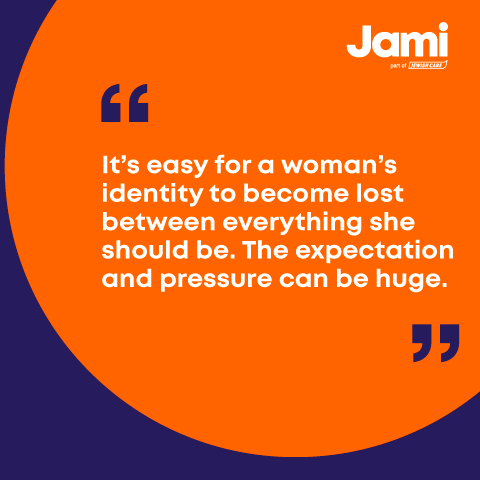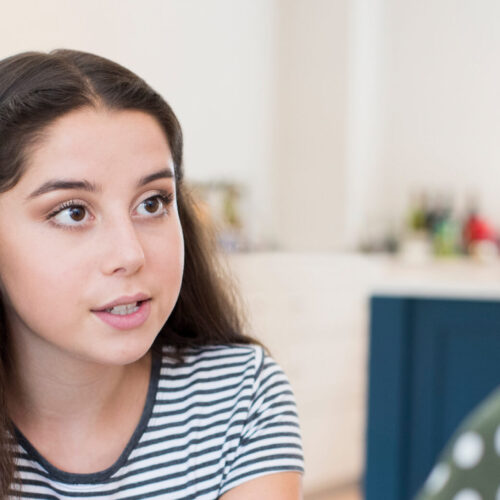
Jonathan Willoughby, an occupational therapist at Jami, shares his deep personal and scientific interest in sleep’s importance for our psychological wellbeing during Sleep Awareness Week (9–15 March) and offers great advice on how we can get a better night’s rest.
Sleep is something that has always been problematic for me.
“You can sleep when you’re dead!” was the phrase I lived by in my teens and 20s, as I travelled, partied and studied myself deeper into fatigue.
Just as I realised this wasn’t sensible, my band got signed to Virgin Records, and we were promised a life of global touring, glamour and excitement. I told a friend I wanted to turn it down for a quieter life. He said, “Are you mad? This is the opportunity of a lifetime!”
So, I pulled myself through tours, festivals, busy rehearsal and recording schedules, and the unavoidable partying lifestyle. But guiltily, what I longed for was an early night.
Gradually, the money ran out, and we resorted to sleeping in the van or on fans’ floors while touring. I found myself with persistent pain in my lower back and pelvis, tinnitus, exhaustion, and constant low mood, and was diagnosed with depression and chronic fatigue syndrome (CFS/ME). A psychologist asked about my sleep patterns and said, “If you’re going to get better, you need to learn how to sleep.”
It turned out my circadian rhythms were completely out of sync. My body didn’t know whether, at 10pm, it should be winding down for sleep or gearing up to go on stage. It explained why I couldn’t sleep, even when I was absolutely exhausted.
Sleep hygiene
With guidance from psychologists, I set up a strict ‘sleep hygiene’ routine. I woke up at 8am and went to bed at 11pm every day. I cut out caffeine after 4pm, minimised fluids after 6pm (so I didn’t get up to go to the toilet), and restricted naps to 30 minutes. I only used my bed for sleep, removed all clocks from my room, and tried to wind down for at least an hour before bed. Crucially, I also learned to meditate, identifying when my body was relaxed or tense, and learning how to detach from intrusive thoughts that kept me awake.
Over time, I began to sleep better, feel more refreshed, and notice a general improvement in my mental health. Those around me noticed too. But then came fatherhood.
Sleep deprivation hits again
At first, I thought I’d got away with it. My partner did the night feeds, and I was on extended paternity leave. But after 18 months of teething, sleep training, nursery bugs, and both of us working full-time, I found myself sleep-deprived and depressed again.
Determined to improve our lives, I dived deep into sleep research, and discovered that poor sleep contributes to nearly every mental health condition. It disrupts the brain’s ability to regulate emotions and process stress effectively, increasing the risk of anxiety and depression. It increases the likelihood of psychosis, OCD, bipolar disorder and suicidal thoughts and behaviours. When sleep deprived, the prefrontal cortex, responsible for rational thinking, becomes less active, while the amygdala, involved in emotional reactions, becomes overactive, leading to heightened emotional responses. And REM and deep sleep are crucial in processing and consolidating memories to maintain cognitive functions, improve emotional stability, and influence how we react to life experiences.
Light and the science of sleep
Thankfully, I also realised that knowledge on how to sleep better had advanced significantly since my band days. For example, I had always known that blue light (from phones and screens) disrupts sleep, but I had resisted morning walks and red light bulbs as a step too far. However, after reading about the Nobel prize-winning research of Dr. Michael W. Young and others, such as Dr. Russell Foster, I realised this was an essential factor I had been missing.
It turns out our brains are sensitive to light’s wavelengths. In the evening, we’ve evolved so that the red and orange light of an evening sky doesn’t interfere with the production of melatonin – the sleep hormone. Morning light, on the other hand, is naturally more blue, and this stimulates wakefulness. Our circadian rhythms are set by this light exposure, which activates cells in the eye (called ipRGCs) that send signals to a region of the brain called the suprachiasmatic nucleus (SCN), our internal “master clock”, which dictates our sleep/wake cycles.
Light: A sleep game changer
I realised that if my son and I both wanted better sleep, we needed to get plenty of natural light in the morning and change our evening light exposure. We now open the curtains wide at 7am and try to go for a morning walk, and use dimmable red light bulbs and avoid screens at night.
My son still wakes occasionally but, by incorporating a combination of proper sleep hygiene with these changes, we’re all sleeping better and my mental health has improved.
What I’ve learned: Sleep is vital
Through this entire journey, the most important lesson I’ve learned is that prioritising sleep is key to truly living. When I sleep well, I am healthier, more present, and better equipped to handle life’s challenges. Sleep isn’t just about resting; it’s about being able to live more fully – and the science backs this up.
If you’re struggling with sleep, remember that small changes, such as improving your sleep hygiene, getting morning sunlight, and incorporating red light in the evening, can really make a difference. If you’re busy mind keeps you awake, these changes are even more important. Sleep is not just a luxury; it’s a cornerstone of wellbeing. It’s not “sleep when you’re dead,” but “sleep and you’ll really live!”
For more information on sleep hygiene and how you can apply it to your life, feel free to contact me at jonathan.willoughby@jamiuk.org
For details of the sources I have used for this blog, please email me.


